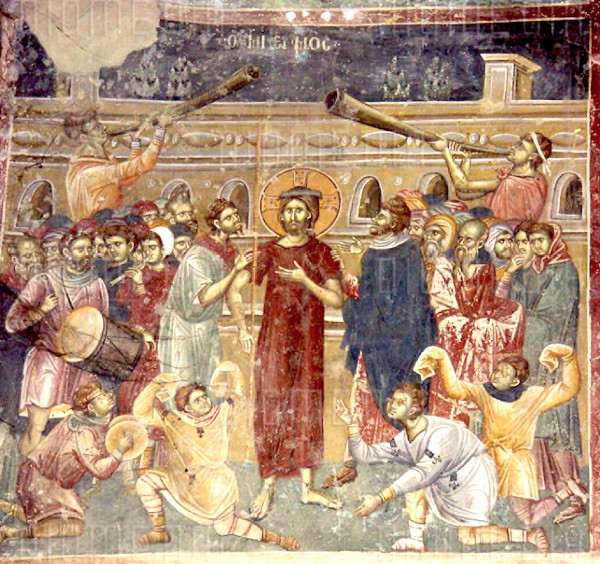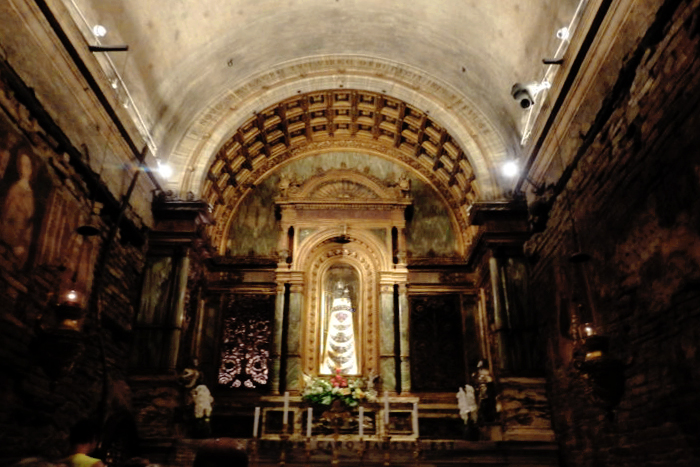 There is a huge difference between a precentor and a choir conductor. A real conductor doesn’t need a diploma—it’s not my own phrase but I agree with it. Many famous conductors became outstanding performers first. David Oistrakh, Vladimir Spivakov were fantastic violinists and then became conductors; Mikhail Pletnev is a remarkable pianist who later became a conductor; Yury Bashmet originally played the viola.
There is a huge difference between a precentor and a choir conductor. A real conductor doesn’t need a diploma—it’s not my own phrase but I agree with it. Many famous conductors became outstanding performers first. David Oistrakh, Vladimir Spivakov were fantastic violinists and then became conductors; Mikhail Pletnev is a remarkable pianist who later became a conductor; Yury Bashmet originally played the viola.A musician grows from within. The conductor’s gestures also come from within, not from outside. That is why it is great if you already have a set of gestural patterns and conducting skills under your belt, if you know the basics of this profession, but you can get to the same point via a different route.
I didn’t know why the Lord put me in charge of the choir but now that’s what I see: God knew that He would make me a nun. I had never wanted to become a nun: I was a down-to-earth mother of three kids. Convent? Really? But God had a plan for my life. I sang in a choir conducted by a friend of mine. It turned out that the cathedral needed another choir. They suggested that I try. When you’re a neophyte, you have no fear: got the blessing? Go and fight!
At first, I was scared. I didn’t know how to conduct the choir. For a long time, I was unsure of how I even dared conduct a choir. Later, I understood that if God needs it, it will happen whether you like it or not.

The participants of our choir hailed from the Academy of Music and from College of Music, so they all demanded a lot from themselves and from each other, and no one was left behind. That’s how we organised our work: “Listen to what I want; I’ll explain it to you, and please do it.” We all had diplomas of conductors and musicologists. When we started performing at concerts, I needed different conducting gestures and I learned them by looking at other conductors and seeing that some of their signs didn’t suit me and didn’t provide the sound that I wanted to hear. So I adapted their signs to fit our choir better. I saw that my singers didn’t understand some gestures, so I showed them what they had to do in a different way, and they finally understood what I meant. I asked for their feedback, and they said, “Keep it simple, do it that way…” and showed how. Sadly, the “conductorship” gets in the way. I see other conductors, even precentors (who are basically singers who stand on the other side of the lectern), and I notice that the usual conducting gestures are exaggerated most of the time, especially at a concert where the audience can see the conductor (as opposed to the church, where the choir is in a separate place). For example, a conductor conducts The Door of Repentance Open Unto Me. That is the first chant sung in anticipation of the Great Lent, and no matter whose music it is—by Chesnokov, Bortnyansky, or just plain obikhod chant—its spirit must be special; it is penitential; you must not wave your arms like a windmill! When things like these happen on stage, I feel distaste and I say to myself, “Regardless of how well you sing, it’s not right.” The visual impression of the conductor on stage is crucial: he or she provides clues as to what people should feel. Whether we want it or not, this indication goes on. That is why every conductor who stands on stage with his or her back to the audience, facing the choir, willy-nilly shows with his posture and all his motions what we should feel according to his interpretation of the piece that is being performed.
A precentor’s job is different. He doesn’t have to demonstrate anything. He stands in the choir loft or in a corner where no one can see him. All he needs to do is lead the choir and provide timely information for the choir about to the text, and know the service, of course, so that everything is in time. A precentor’s gestures must be modest. Everything he does must be aimed at enabling people in the nave to hear the sacred texts of those chants and at avoiding all shades of affection, i.e., passions, like I’m sad—I’m scared—and that’s a siiiin! When a church choir highlights the texts like that, you can’t expect a prayerful mood. Sometimes I hear people say, “They sang so well! So loud and emotional!” That’s the opposite of praise for a church choir. We must not be emotionally unstable. Even Saint Ignatius Bryanchaninov said so. Pyotr Ilyich Tchaikovsky didn’t call himself a church composer, although he composed a Liturgy and an All-Night Vigil. He didn’t intend it for church use. A humble priest, whom I had heard of before I came to the Convent, approached our choir after we sang the Cherubic Hymn by Tchaikovsky and said, “You sang really well but please never sing it again. When I hear your Cherubic Hymn, I imagine Russian birch trees.” It was Tchaikovsky’s music.
June 23, 2018
St. Elisabeth Convent




